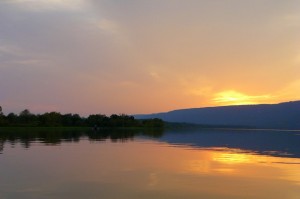State, Tribes Want More Time to Figure Out Who Controls Southeast Oklahoma Water
-
Logan Layden
The Choctaw and Chickasaw Nations sued the state more than two years ago to stop Oklahoma’s City attempt to pipe water northwest from Sardis Lake. On Tuesday, all the parties involved asked for the case to be stayed a sixth time, for 120 more days.
University of Oklahoma law professor and tribal law expert Taiawagi Helton tells StateImpact the tribal governments claim pre-Civil War indian removal treaties gave them ownership of the water within their nations’ boundaries.
And despite siding with the Confederacy during the Civil War, their land being parceled out to individuals in the late 19th century, and eventual statehood, the tribes say their right to the water was never specifically taken away.
“Control of water may be now in the hands of others, but I’m not sure that the laws expressly did so,” Helton says.
It’s been difficult to get information about how the negotiations are going, because a gag order is in effect. But in June, Chickasaw Gov. Bill Anoatubby did tell the Associated Press he’s hopeful the issue can be settled out of court.
“We’re looking at long-term sustainability for the asset, proper allocations so that the people in southeastern Oklahoma and the state of Oklahoma can benefit from its resources.”
This could take a lot more time to resolve. State Sen. Jerry Ellis, D-Valliant, whose district includes Sardis Lake just wants to see the case stay out of court.
“I’m in hopes that they’ll — the negotiations will be fruitful and they’ll reach an agreement, because it’s a lot cheaper to talk outside the courtroom,” Ellis says.


